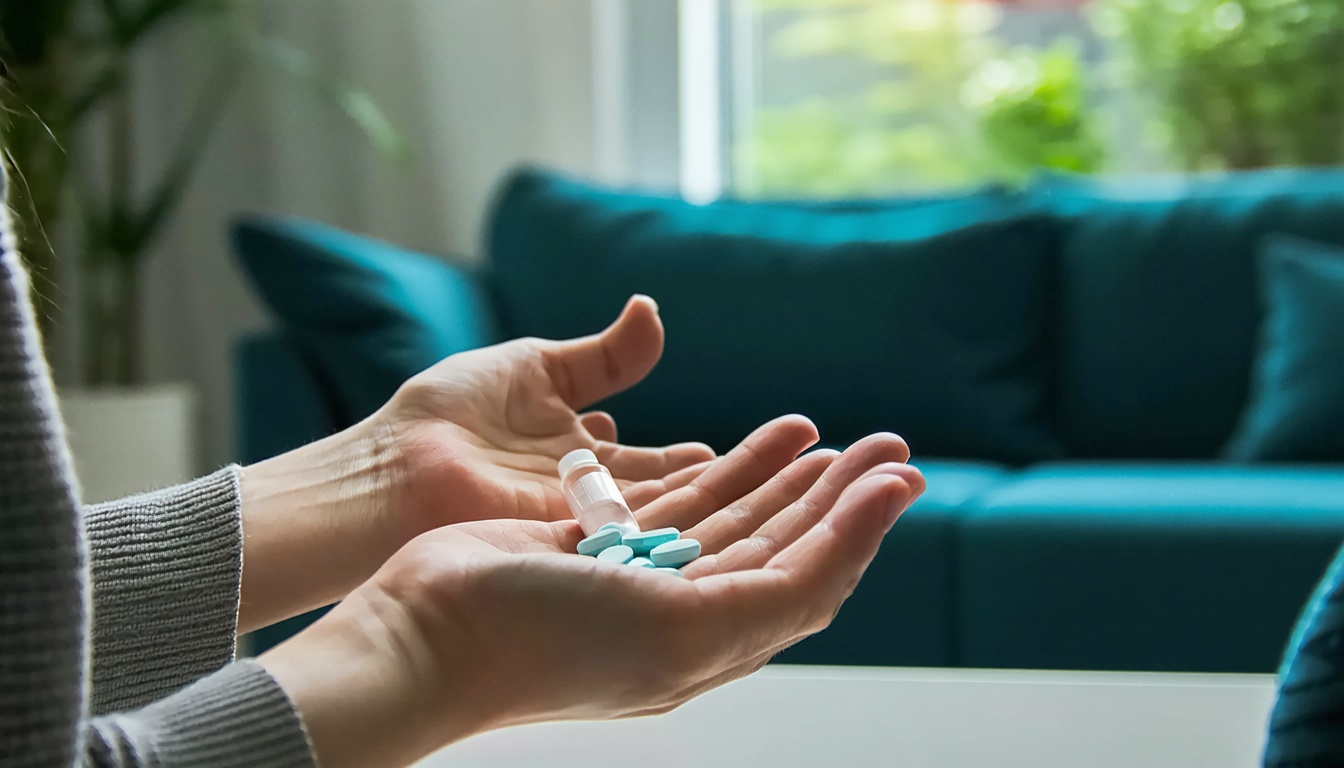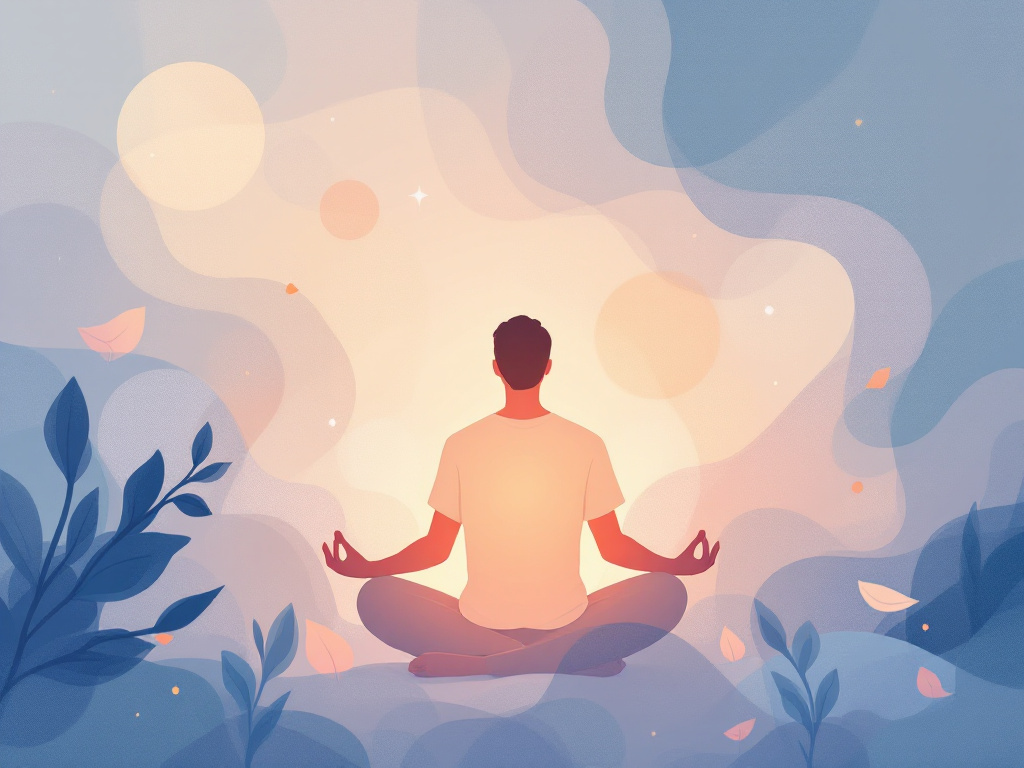Understand the importance of pain pill withdrawal management
When you decide to break free from dependency on prescription pain medications, you might wonder how to navigate the obstacles of managing withdrawal symptoms. Pain pill withdrawal management is a structured approach that aims to ease the discomfort of detox while laying a foundation for lasting recovery. By following a supportive and expert-driven plan, you can safeguard your health, reduce your risk of relapse, and create a path toward a healthier, drug-free future.
If you or your loved one is specifically seeking a men’s-focused program, choosing a dedicated center can be essential. Centers like Recovery Bay Center offer a unique and supportive environment tailored to male clients, recognizing the emotional challenges, societal pressures, and personal stressors that men often face. The goal is to encourage you to explore how expert programs can help manage pain pill withdrawal in a safe, comprehensive way.
In the sections below, you will discover what makes pain pill detox a critical step, the potential complications of doing it on your own, and the proven strategies that can help set the stage for recovery. You will also learn why Recovery Bay Center’s men’s drug and alcohol detox and rehab services may be the right fit for ensuring you receive the support necessary for lasting change.
Recognize the unique challenges of prescription pain pill dependence
Persistent use of pain pills, or any opioids, can lead to physical and psychological dependence that is especially challenging to overcome. Even when taken as prescribed, the body and mind can quickly adapt to these medications. Research indicates that many individuals become dependent over time because they fear the withdrawal process more than the drug itself [1]. From uncomfortable physical symptoms to emotional turmoil, withdrawal can test your resolve and derail your goals if you do not have a sound plan.
Physical and emotional hurdles
- Physical symptoms: Nausea, vomiting, diarrhea, and sweating are common when stopping or reducing the dosage of pain pills. The body’s central nervous system experiences significant shock as it rebalances neurotransmitters and hormones.
- Emotional disturbances: Anxiety, depression, irritability, and mood swings can escalate as you adjust to life without pain-relieving medications.
- Societal pressures: Men in particular may be encouraged to appear strong or unemotional, leaving little room to express vulnerability during detox. This pressure can lead to isolation if you do not feel your environment supports open dialogue.
Why specialized support matters
Withdrawal can pose serious health risks when attempted alone. Dehydration, electrolyte imbalances, and an increased possibility of relapse are just a few potential complications [2]. Expert guidance, especially in a dedicated men’s rehab setting, helps you mitigate these dangers. By seeking help from professionals who offer medical, therapeutic, and emotional services, you greatly increase your likelihood of achieving a sustainable recovery.
Explore the value of a tailored men’s rehab environment
Men face particular emotional and behavioral challenges in addiction recovery, shaped by societal expectations, masculine norms, and unique stressors. A rehabilitation program designed specifically for male clients focuses on those factors to create a supportive environment, one that acknowledges shared experiences and fosters camaraderie.
How a men’s-only setting supports you
- Peer understanding: You can safely express feelings, discuss hardships, and explore concerns that might be difficult to address in a mixed environment.
- Reduced judgment: Men often suppress emotions, fearing judgment or ridicule. Sharing experiences around others who face similar pressures can open doors to healthier communication.
- Focused therapy: From individual therapy sessions to group therapy dynamics, men’s-only programs are structured to address issues like workplace stress, family obligations, and societal roles.
Linking identity and healing
Many men cling to the ideal that they should appear impervious to stress. This ingrained mindset can deter them from having honest conversations about pain pill dependency. A specialized center like Recovery Bay Center acknowledges these challenges, incorporating therapy styles that invite men to discuss fears, vulnerabilities, and setbacks without shame. The result is a richer, more open environment that fosters clarity, personal growth, and hope.
Discover how Recovery Bay Center supports your journey
Choosing a facility with a proven track record in addiction treatment can be the turning point in your path. When you decide to entrust your recovery to Recovery Bay Center, you access a number of essential features that promote a safe, effective withdrawal and put you on course for a well-rounded life in sobriety.
Comprehensive care and medical oversight
Pain pill detox can be physically dangerous if not handled properly. At Recovery Bay Center, you gain access to medical staff detox who closely monitor your well-being 24 hours a day. This level of care dramatically lowers the risk of complications like severe dehydration or withdrawal-induced cardiac distress. Should you experience intense symptoms, you can promptly receive medical interventions such as pharmacological support detox to reduce discomfort and help you maintain stability.
Safe withdrawal environment
A specialized, safe withdrawal environment sets the stage for a positive detox experience. Equipped with trained professionals and immediate access to medical services, Recovery Bay Center ensures that your unique challenges as a man receive careful attention. You do not have to hide your symptoms or fear expressing distress. Instead, you can focus on rest, healing, and regaining strength in an atmosphere that respects the particular layers of your experience.
Tailored treatment programs and therapies
Your journey does not end with detox. Lasting recovery often depends on addressing the emotional, behavioral, and social factors that contribute to substance misuse. Recovery Bay Center offers a variety of complementary therapies and interventions, including:
- Psychiatric support therapy for co-occurring mental health conditions
- Trauma informed therapy to explore and heal past pain
- Family therapy that rebuilds relationships and strengthens your support network
- Holistic therapy that includes wellness-based strategies like yoga and meditation
- Dual diagnosis therapy if you face both addiction and underlying mental health disorders
Utilizing a broad spectrum of approaches allows your treatment to be personalized. This level of customization provides the support necessary for lasting recovery, enabling you to tackle the various dimensions of addiction.
Medication assistance during detox
Withdrawal symptoms can feel overwhelming without the proper pharmacological tools. Research confirms that medications like methadone, buprenorphine (Subutex), and clonidine can stabilize your condition, reducing unpleasant effects and curbing cravings during withdrawal [2]. Recovery Bay Center can integrate suboxone treatment rehab, vivitrol treatment program, or other appropriate medication approaches under expert supervision. Every regimen is recommended on a case-by-case basis, ensuring your detox plan fits your physical health and specific challenges.
Unique therapies for holistic healing
You can focus on your entire well-being, not just eliminating the drug from your system. Lifestyle and emotional health play major roles in sustaining sobriety, which is why Recovery Bay Center presents an array of options:
- Life skills training therapy focuses on practical skills for daily living, time management, and self-care
- Nutrition support rehab and nutrition counseling reinforce proper eating habits that aid body and mind
- Structured outdoor fitness helps you regain physical health and reduce stress
- Holistic wellness therapy and yoga therapy residential introduce mindfulness, balance, and stress relief
Comprehensive care means addressing every facet of life that may have contributed to prescription drug dependency. Indeed, your background, your coping style, and your health status all matter in forging a stable foundation beyond detox.
Identify effective strategies for successful withdrawal
Withdrawal is a pivotal phase in the recovery journey and requires a systematic plan. When you look at pain pill detox holistically, you will find that a combination of medication management, psychological therapy, and continued aftercare are critical to success. The following strategies can help you move toward a sustained recovery.
Medication-assisted detox
Medication-assisted detox involves using prescription medications to control withdrawal symptoms and reduce cravings, while carefully tapering off harmful substances. According to the National Institutes of Health, medications like methadone and buprenorphine are first-line treatments for moderate to severe opioid dependency [3]. Buprenorphine in particular requires precise timing—12 to 18 hours from the last dose of short-acting opioids or 24 to 48 hours for long-acting drugs—to avoid precipitated withdrawal. Under professional supervision, these medications can bridge the difficult gap between active use and total abstinence.
Common medication approaches
| Medication | Key Benefits |
|---|---|
| Methadone | Eases severe withdrawal and reduces cravings |
| Buprenorphine (Subutex) | Minimizes symptoms, lowers relapse risk |
| Naltrexone | Blocks opioid receptors to combat relapse |
Therapeutic interventions for deeper healing
Though medication can stabilize immediate symptoms, addiction involves emotional and mental health factors. You will benefit from:
- Psychotherapy: Cognitive behavioral interventions address problematic thought processes and teach you to reframe negative beliefs.
- Support groups: Connecting with peers normalizes shared challenges, enabling you to learn coping tactics from others on a similar path.
- Specialized approaches: Trauma group therapy and emdr trauma therapy can be fundamental if past trauma feeds your substance use.
Men, in particular, may find that exploring narratives around masculinity and self-reliance offers opportunities for constructive change. Opening up about these topics reduces the sense of isolation and shame.
Ongoing relapse prevention
Managing withdrawal is only the beginning. Once you successfully detox, relapse prevention becomes a top priority. The right program offers a structured setting—through outpatient step down care, alumni program support, or peer support alumni—to ensure that you continue receiving guidance. Additionally, programs catered to men address stressors encountered in work, relationships, and societal responsibilities that can trigger concerns over time.
A helpful tool for relapse prevention is relapse prevention therapy, a solution-based approach that focuses on identifying triggers, enhancing coping skills, and solidifying your commitment to sobriety. By mastering these strategies, you can feel confident navigating situations that might once have driven you toward substance use.
Embrace the advantages of Recovery Bay Center’s philosophy
When you place your trust in Recovery Bay Center, you invest in a supportive environment with robust clinical, therapeutic, and holistic resources. The center’s men-focused perspective allows each part of your care plan to align with the specific trials you face. This sense of specialized attention, combined with a community of peers who understand your starting point, can transform your journey.
Continuum of care
At Recovery Bay Center, your involvement extends well beyond detox. You can remain engaged through structured programs like telehealth case management, sober living referral, and employment assistance rehab. These services help smooth your transition from inpatient or intensive treatments back to daily life.
As you progress, you might access:
- Private men’s recovery community to reinforce connections
- Structured recovery plan to outline ongoing schedules and goals
- Sober community alumni program to share milestones and struggles with peers
By remaining consistently engaged in treatment and aftercare, you can address challenges that arise over time without losing the momentum you gained in detox.
Holistic and integrative approaches
Part of building a new life beyond pain pill dependency lies in adopting practices that nurture overall well-being. Recovery Bay Center ensures an integrative style of treatment that addresses emotional, cognitive, and spiritual dimensions:
- Physical wellness: Yoga and meditation improve relaxation, reduce stress, and enhance mood stability.
- Nutritional balance: Quality meals from therapeutic chef meals or private chef recovery meals remove the guesswork regarding healthy eating, paving the way for natural energy and improved mental clarity.
- Stress management: Taking advantage of stress management therapy helps you develop healthier coping techniques for everyday life.
Each of these resources is particularly crafted with men’s unique challenges in mind. By learning strategies that address the whole person, you place yourself on a path toward wide-ranging transformation.
Commitment to mental health support
Men battling addiction sometimes struggle with undiagnosed conditions like anxiety, depression, or post-traumatic stress disorder. The interplay between mental health and substance use can complicate pain pill withdrawal. Recovery Bay Center acknowledges this vital connection through programs such as:
- Men’s mental health counseling
- Structured mental health support
- Dual diagnosis therapy
By treating both mental and substance use disorders at once, you set the stage for steadier progress and enhance your resilience to future triggers.
Why choose Recovery Bay Center for pain pill detox and rehab
As you explore your options for men’s drug and alcohol rehab, consider the comprehensive services and empathetic care that Recovery Bay Center provides. Here is what sets this center apart:
- Professional expertise: You have round-the-clock access to specialists trained in withdrawal management, mental health assessment, and medication-assisted treatment.
- Supportive environment: The community thrives on open communication, empathy, and mutual respect. You will find encouragement from peers who understand your life experiences, with a focus on camaraderie and accountability.
- Individualized plans: Every person’s dependency story differs. Recovery Bay Center tailors programs to address your background, physical health, mental state, and personal goals.
- Comprehensive care: The center offers an extensive range of therapies, which can include process addiction support, veterans addiction support, or branding motivational incentives, depending on your particular circumstances.
- Ongoing support: After your detox phase, you have the opportunity to continue in structured programs, outpatient care, and alumni networks. This ensures you solidify new habits and remain motivated.
By championing targeted men’s services and combining them with robust clinical and holistic treatments, Recovery Bay Center helps you reclaim your life step by step.
Build a healthy foundation for long-term success
Managing prescription pain pill withdrawal is one overriding goal, but achieving a fulfilling, substance-free life requires additional layers of self-discovery and healing. Once you gain control over detox symptoms, you can devote energies to strengthening your identity and forging deeper connections with loved ones. In many men’s rehab settings, this phase reveals a renewed sense of purpose and opens you to fresh opportunities.
Shift your mindset
Transforming your perspective on daily life is often a gradual process, supported by therapy and peer discussions. You might learn new coping mechanisms, practice mindfulness, or engage in meditation therapy residential to ground yourself. Over time, you can train your mind to respond differently to stressors, craving triggers, or discouraging thoughts.
Reinforce your relationships
From family therapy to participating in recovery support groups, you will better understand the dynamics that may have influenced your substance use. Healing relationships and building respectful, constructive communication can improve your chance of staying sober and forging respectful mutual support with those closest to you.
Develop forward-thinking goals
Goal-setting is vital in symbolizing a fresh start. You might pursue new career paths, enroll in educational programs, or explore employment assistance rehab if you need guidance in returning to or advancing in the workforce. Additionally, you can build fitness or wellness milestones that keep you exercising self-discipline and self-belief.
Frequently asked questions
Below are some common questions people ask when considering how best to handle prescription pain pill withdrawal.
How long does pain pill detox take?
The exact timeline depends on factors such as the type of pain pill you have been using, the dosage, and your personal response. Short-acting opioids can trigger withdrawal symptoms within 6 to 12 hours of your last dose, peaking around the second or third day. Slow-release opioids might lead to a longer but generally less intense withdrawal period [4].Why can’t I detox fully on my own?
Quitting alone can be risky, as severe withdrawal symptoms can include vomiting, dehydration, and heart-related stress. Additionally, unsupervised detox significantly elevates the risk of relapse. By seeking professional help in a safe withdrawal environment, you can minimize these dangers and receive appropriate medical care.Is medication-assisted treatment always necessary?
Not always, but it can be highly effective. Medications like buprenorphine or methadone can help stabilize withdrawal, manage cravings, and reduce the chance of relapse [3]. You and your clinical team will discuss whether these medications fit your personal situation.What if I have a dual diagnosis?
Many individuals who struggle with prescription drug dependency also experience mental health issues. Programs that emphasize dual diagnosis therapy are vital for addressing both issues at once. By treating the full scope of health concerns, you align yourself with a better chance of long-term recovery.How can I sustain my progress after detox?
A structured, long-term plan is key. This may include relapse prevention therapy, continued attendance in recovery support groups, and access to supportive networks like an alumni program support. Remaining engaged in these resources expands your coping skills and boosts accountability.
Conclusion: Begin your transformation with Recovery Bay Center
When you find yourself ready to escape the cycle of prescription pain pill use, choosing the right rehab program is a decision that can shift the course of your life. By focusing on a men’s rehab environment like Recovery Bay Center, you are positioning yourself in a tailored treatment program that acknowledges the unique challenges men face, offers a supportive environment, and provides comprehensive care that encompasses the physical, emotional, and mental aspects of recovery.
Through individualized plans, you can receive medication assistance, guidance from expert clinicians, and a robust network of peers who share your struggles and triumphs. If you or a loved one is seeking a compassionate, medically supervised detox and rehab experience, explore how Recovery Bay Center can guide you to rediscover a life of balance and self-confidence.
Start your path toward freedom from pain pill dependency by trusting in a center that is dedicated to your well-being. Through expert oversight, empathy, and an unwavering commitment to fostering healthy lifestyles, Recovery Bay Center stands ready to empower you to embrace the future you deserve.
References
- (PMC)
- (MedlinePlus)
- (NCBI)
- (Healthdirect)





